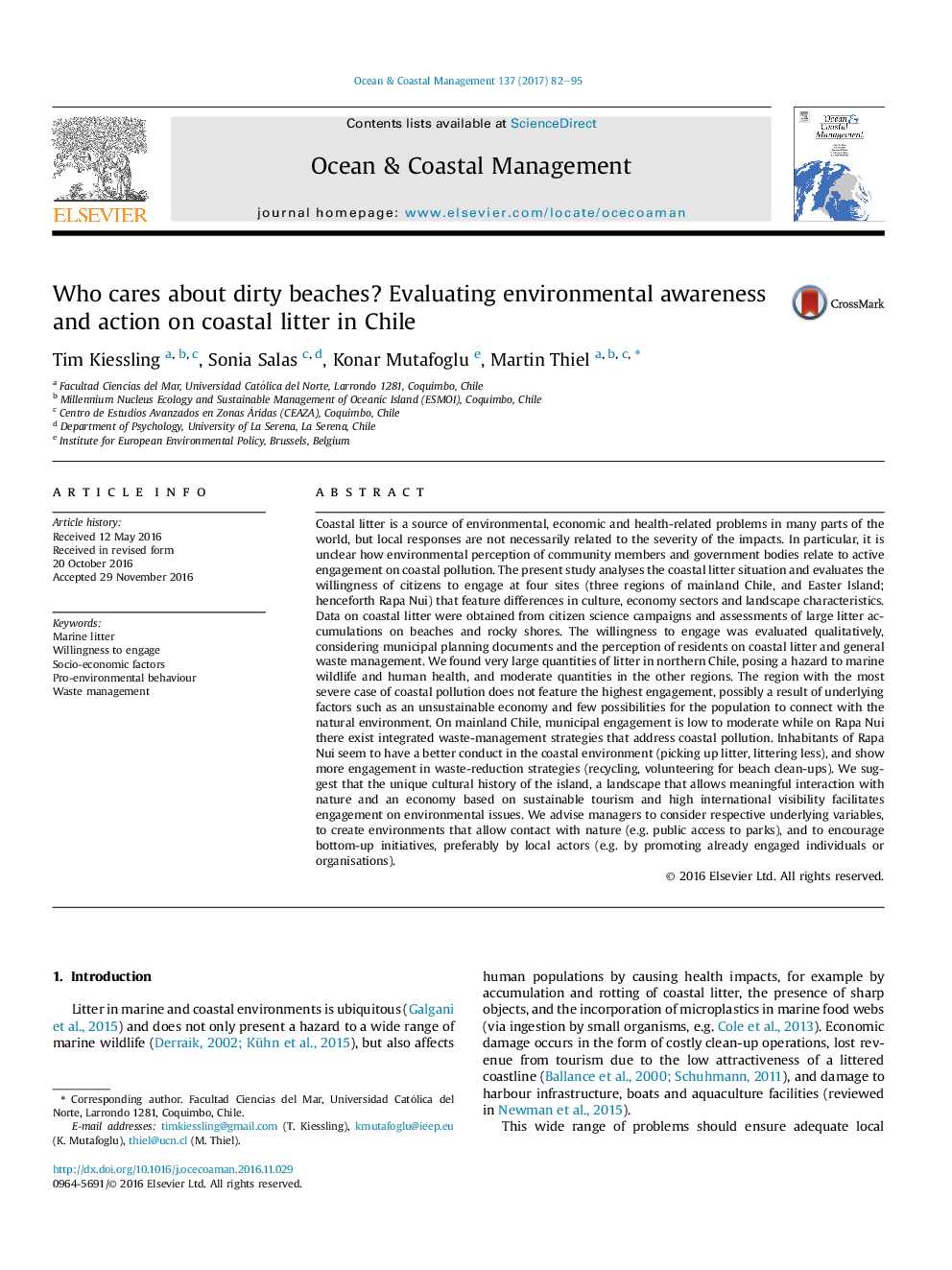ترجمه فارسی عنوان مقاله
چه کسی در مورد سواحل کثیف مراقبت می کند؟ ارزیابی آگاهی محیط زیست و اقدام بر روی بستر ساحلی در شیلی
عنوان انگلیسی
Who cares about dirty beaches? Evaluating environmental awareness and action on coastal litter in Chile
| کد مقاله | سال انتشار | تعداد صفحات مقاله انگلیسی |
|---|---|---|
| 160108 | 2017 | 14 صفحه PDF |
منبع

Publisher : Elsevier - Science Direct (الزویر - ساینس دایرکت)
Journal : Ocean & Coastal Management, Volume 137, 1 March 2017, Pages 82-95
ترجمه کلمات کلیدی
بستر دریایی، تمایل به مشارکت، عوامل اجتماعی و اقتصادی، رفتار طرفدار محیط زیست، مدیریت زباله،
کلمات کلیدی انگلیسی
Marine litter; Willingness to engage; Socio-economic factors; Pro-environmental behaviour; Waste management;

